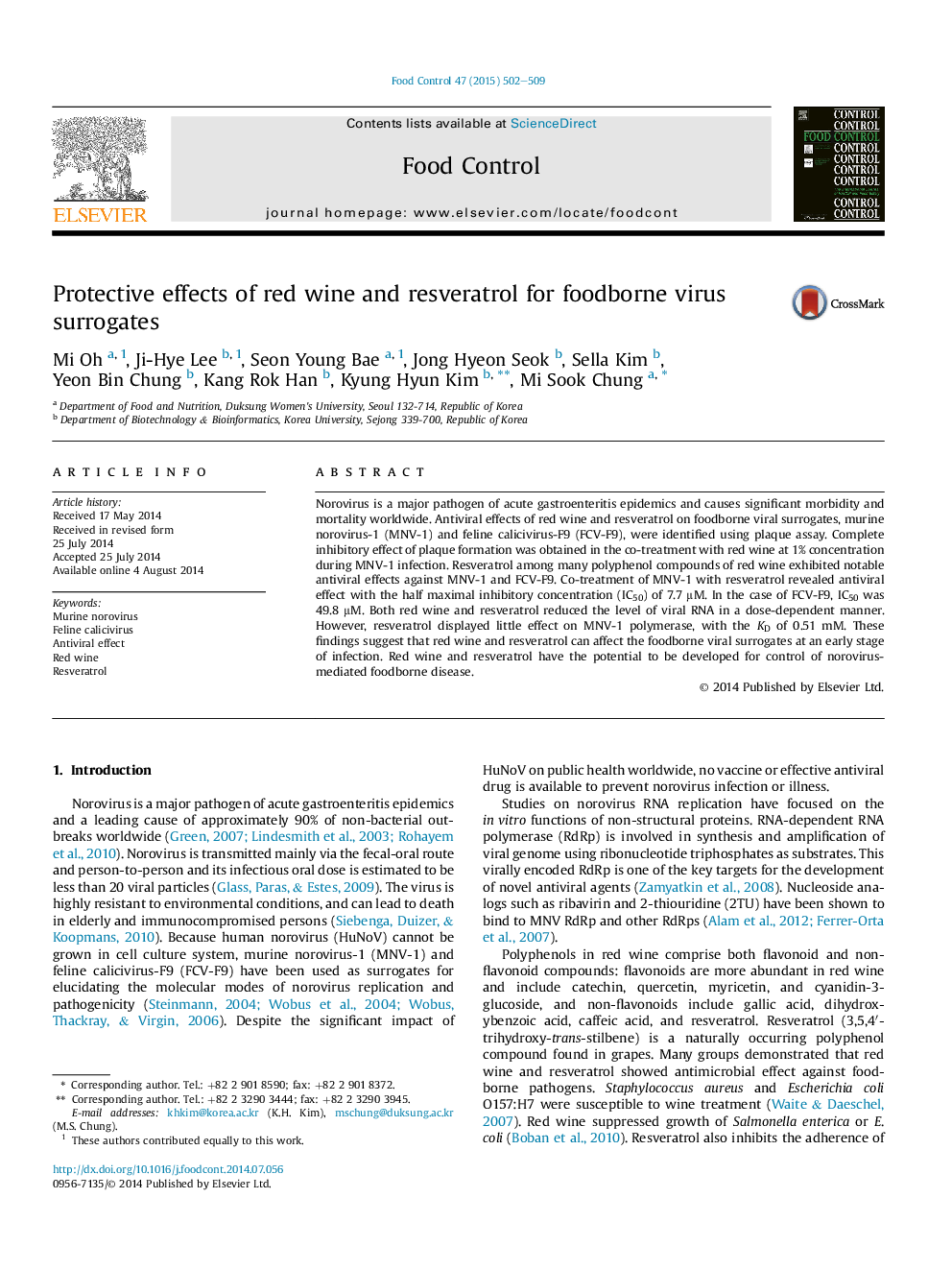| Article ID | Journal | Published Year | Pages | File Type |
|---|---|---|---|---|
| 6391473 | Food Control | 2015 | 8 Pages |
Abstract
Norovirus is a major pathogen of acute gastroenteritis epidemics and causes significant morbidity and mortality worldwide. Antiviral effects of red wine and resveratrol on foodborne viral surrogates, murine norovirus-1 (MNV-1) and feline calicivirus-F9 (FCV-F9), were identified using plaque assay. Complete inhibitory effect of plaque formation was obtained in the co-treatment with red wine at 1% concentration during MNV-1 infection. Resveratrol among many polyphenol compounds of red wine exhibited notable antiviral effects against MNV-1 and FCV-F9. Co-treatment of MNV-1 with resveratrol revealed antiviral effect with the half maximal inhibitory concentration (IC50) of 7.7 μM. In the case of FCV-F9, IC50 was 49.8 μM. Both red wine and resveratrol reduced the level of viral RNA in a dose-dependent manner. However, resveratrol displayed little effect on MNV-1 polymerase, with the KD of 0.51 mM. These findings suggest that red wine and resveratrol can affect the foodborne viral surrogates at an early stage of infection. Red wine and resveratrol have the potential to be developed for control of norovirus-mediated foodborne disease.
Related Topics
Life Sciences
Agricultural and Biological Sciences
Food Science
Authors
Mi Oh, Ji-Hye Lee, Seon Young Bae, Jong Hyeon Seok, Sella Kim, Yeon Bin Chung, Kang Rok Han, Kyung Hyun Kim, Mi Sook Chung,
